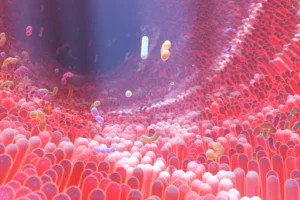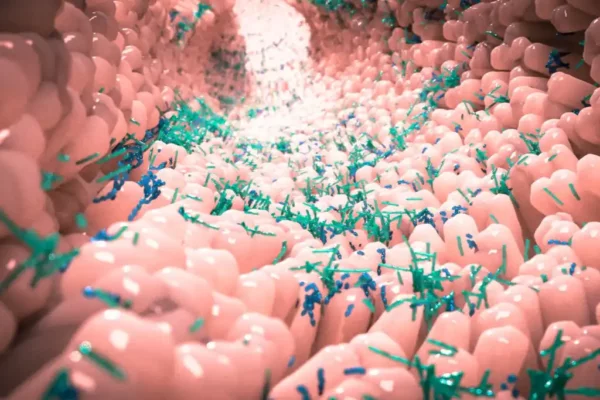Wisdom, Loneliness, and Gut Microbiota are Linked

You’d probably think that wisdom, loneliness, and gut microbiota were completely unrelated to each other. However, a recent study in the field of neuroscience showed that they’re actually closely linked.
The University of San Diego, California (USA) conducted this research. Dr. Tanya T. Nguyen led the study. In fact, it was published in the journal, Frontiers in Psychiatry.
What’s the relationship between wisdom, loneliness, and gut microbiota? Interestingly, the researchers proposed that both wisdom and loneliness are feelings that seem to be heavily influenced by the diversity of microorganisms in the gut. This ratifies the idea of the gut as being the “second brain”
“How sad to think that nature speaks and mankind doesn’t listen.”
-Victor Hugo-
The study
The researchers conducted the study with 184 participants of both sexes. All of them were in good health. They ranged between 28 and 97 years old.
The researchers gave all the participants a questionnaire to assess their levels of loneliness and wisdom. The questionnaire also asked about levels of compassion, social support, and commitment. Furthermore, the participants all provided samples of their excrement. Scientists analyzed these samples in a laboratory.
The researchers were working on the basis of a theory that had been mentioned in previous studies. It proposed that the traits of wisdom correspond to certain regions of the brain. In fact, those who are wiser develop more intense feelings of happiness and well-being. At the same time, those who are less wise tend to feel less comfortable about their life.
In addition, those with more wisdom experience fewer feelings of loneliness. Similarly, those who are lonely tend to be less wise.
The influence of gut microbiota
We formerly knew microbiota as “gut flora”. It’s made up of trillions of microbes that inhabit the digestive tract. These can be bacteria, fungi, or viruses. For a long time, scientists have considered that there exists a gut-brain axis. In other words, that there’s an essential link between the two organs. Consequently, intestinal function influences the emotional and cognitive centers of the brain and vice versa.
Alterations in the gut-brain axis can cause deficiencies in stress responses, moods, and decision-making, among other processes. Furthermore, scientists discovered that microbiota has an impact on mental health disorders. For example, depression and anxiety.
Before they conducted the University of California study, scientists had already found evidence that suggested people who had a more active and diverse social life also had more varied microbiota. The University of California researchers followed on from this information. Their results turned out to be extremely interesting.
The results
To establish the relationship between wisdom, loneliness, and intestinal microbiota, the researchers compared the questionnaire results with the analyses of the excrement. Although it may seem rather bizarre, this meant they were able to establish whether there was a relationship between the two elements.
The scientists measured microbial diversity in two ways. The first was alpha-diversity. This concerned the ecological richness of the microbe species in each individual. The second was beta-diversity. This concerned the diversity in the composition of the community of microbes.
The results suggested that:
- People with lower levels of loneliness and higher levels of wisdom had an ecologically richer and more diverse population of microbes.
- People with reduced diversity of microbes experienced poorer mental and physical health.
- The more diverse the microbiota, the less likely it is that pathogens will invade.
Conclusion
Scientists don’t know why there’s a link between wisdom, loneliness, and intestinal microbiota. In fact, they’re unsure as to how psychological and biological factors interact. Perhaps a poor mental state affects the microbiota. However, it could be the other way around. Nevertheless, they’ve certainly found definite evidence in support of the relationship between these three factors.
All cited sources were thoroughly reviewed by our team to ensure their quality, reliability, currency, and validity. The bibliography of this article was considered reliable and of academic or scientific accuracy.
Castañeda Guillot, C. (2020). Microbiota intestinal y trastornos del comportamiento mental. Revista Cubana de Pediatría, 92(2).
This text is provided for informational purposes only and does not replace consultation with a professional. If in doubt, consult your specialist.










